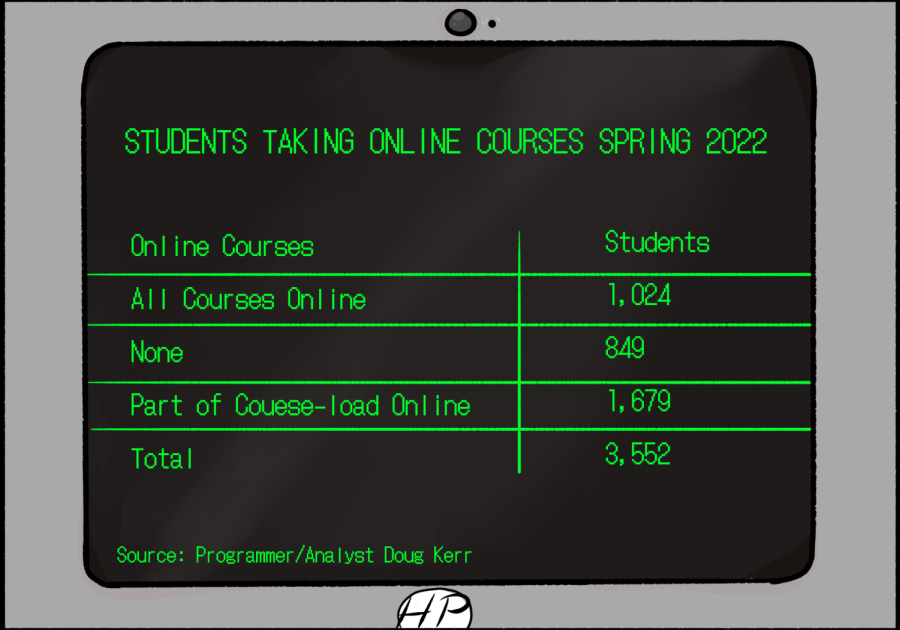IU Southeast community unsure of feelings for Omicron variant
Check out the number of online-only IUS students in early 2022. The percentage was unchanged in fall 2022.
February 7, 2022
Since the rise of COVID-19, mandates and vaccines have been put in place to mitigate the spread, however, the Omicron variant has rapidly spread, affecting activity on campus.
The IUS community has varied opinions about Omicron. While some have been wary of the variant, others have become frustrated.
Abigail Wilhite, a sophomore majoring in elementary education, is frustrated with Omicron and how contagious it is.
“It’s like we’re back to square one,” she said.
Some faculty and students at IUS are concerned about the status of their in-person classes.
Wilhite said people may not have the flexibility to change their class schedules if those schedules are inconsistent or changing because of school being in-person.
She said if classes are virtual, it can be challenging to accomplish because some struggle to be motivated to do online classwork.
However, students also feel there are fewer assignments outside of class when classes are in-person and are more likely to ask questions in class, making it easier to understand course material.
Dr. Robert Rennie, assistant professor of history, said that the Omicron surge is also a moment of acute concern for him.
“We are all masked, and I think there is an increased sense of anxiety in the room, for good reason,” he said.
Not only is there a rise in general anxieties, but for some there is also a change in the ability to learn and run a course.
“In education we talk about metacognition – your ability to think and process information so that you can learn effectively,” said Rennie.
“When you are dealing with stressors, regardless of what they are, they drain your ability to learn. So, for some students, being in a classroom with people in masks can be a drain on their ability to learn.”
He also added that he had many students stop working on online courses because it was worsening their mental health.
While there are difficulties, the possibility of online education brings positives as well.
Wilhite feels that being online allows for more safety, and it helps give people who are not comfortable with in-person classes more of a choice.
Even professors have learned new ways to integrate technology in their teachings when it comes to online e-learning.
Rennie said being online has positively changed how he has taught, and he has learned how Canvas is an important, integral part of how he instructs in-person and online. His classes can now be more portable, and he said these benefits will be integrated into his classes going forward.
IUS wants to help its faculty and students as much as possible, but also mentions that the campus community has to work together.
“We need to remember the wider community we are all a part of,” said Rennie. “The best response at a moment like this is to provide as much flexibility for faculty and students while still maintaining the high standards we have at IU.”
If students or faculty are feeling symptomatic or need to report vaccinations, visit https://www.iu.edu/covid/. If testing is unavailable on campus, contact a local health department to find testing sites.


